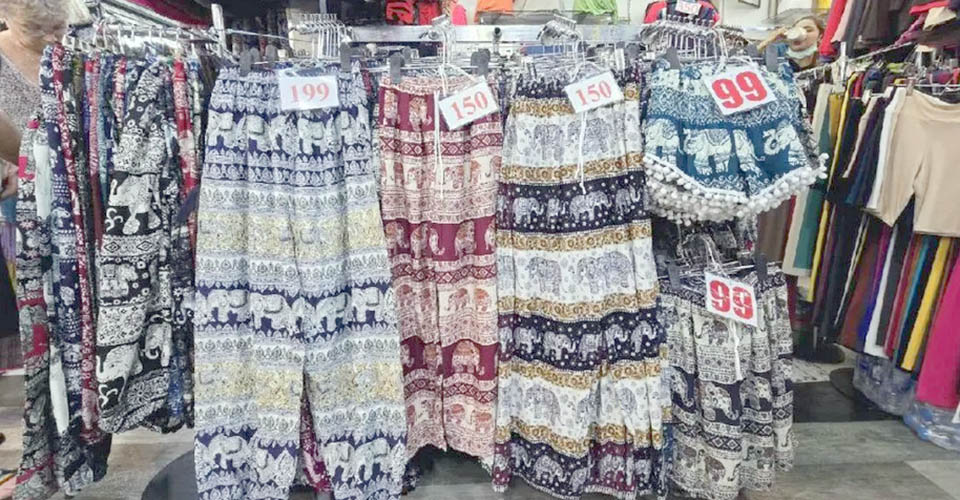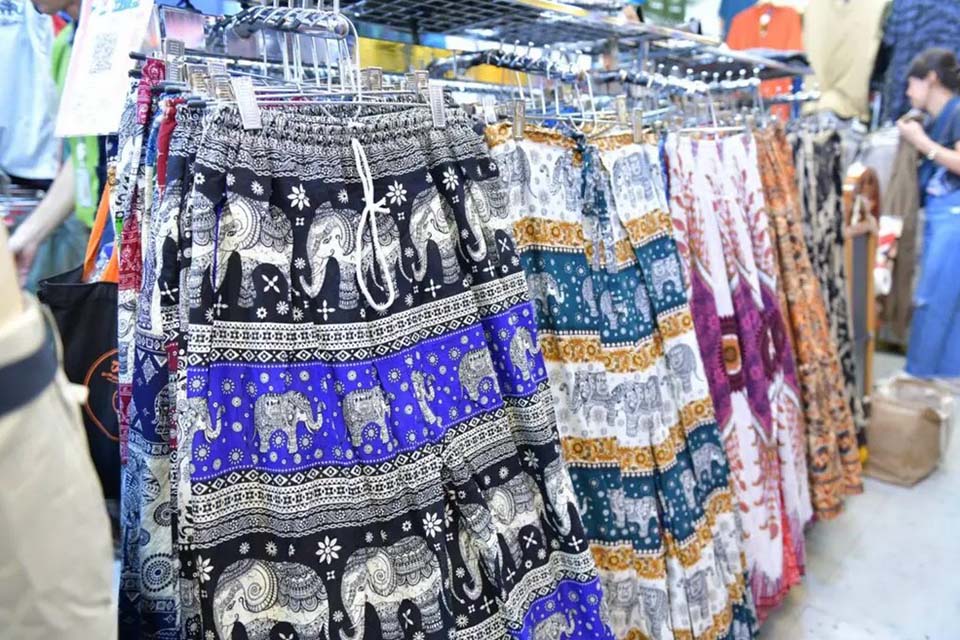
The Thai government insists that elephant and cat-patterned pants made in Thailand have been copyrighted, with the Director-General of the Department of Intellectual Property emphasizing that the elephant pattern on pants is a copyrighted work and cannot be commercially reproduced or modified.
Although the elephant print pants are considered one of Thailand’s soft power fashion items, the influx of China-made elephant pants into the Thai market are distributed by a major Chinese private company at a lower cost than the Thai counterparts.
There have been concerns about copyright infringement, and the government is taking action to address the situation. Deputy Prime Minister and Commerce Minister Phumtham Wechayachai commented on the “elephant pants” issue, saying that the copyright for elephant-patterned or cat-patterned pants is now confirmed.
However, the manufactured designs from China may differ or be distorted, so it is necessary to investigate how much the law covers. He has instructed the Department of Intellectual Property to inspect the market to determine the extent of such products and directed the Customs Department to control these goods at all checkpoints.
In addition, the Department of International Trade Promotion will coordinate the control of product quality. It may introduce symbols or logos to indicate that this product is of Thai origin, aiming to support Thai products. It is suggested that imported products, when compared to those produced by Thais, may have significantly lower quality. Products that come at a much lower price may also lack standardized quality and may be not durable.

In response to this, Wutthikrai Leeviraphan, the Director-General of the Department of Intellectual Property, revealed that preliminary checks found that elephant-patterned pants, a popular souvenir among tourists, are unique designs, created by Thais.
Some individuals have filed copyright claims with the department. Unauthorized reproduction or commercial use without permission from the copyright owner is strictly prohibited. Authorities will intensify inspections in key shopping areas, provide guidance to traders on the importance of copyright, and recommend checking the origins of the products before selling.
Moreover, the Intellectual Property Department, in collaboration with the Customs Department, will strengthen efforts to investigate suspicious imports of goods that may violate copyright laws at Thailand’s borders, not limited to just elephant-patterned pants but extending to other copyrighted designs like the Korat cat or the Mae Klong mackerel patterns.
Penalties for copyright infringement range from fines of 20,000 to 200,000 baht. If the infringement is for commercial purposes, penalties can include imprisonment for 6 months to 4 years or fines ranging from 100,000 to 800,000 baht, or a combination of both. (TNA)








